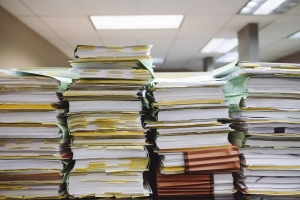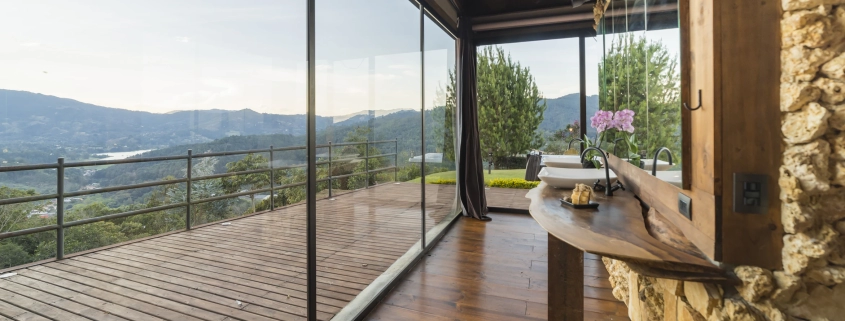Italian Property Planning: Salva-Casa Decree
The 2024 Salva-Casa Decree has received official approval by Italy’s Council of Ministers. The decree marks a significant step in simplifying and streamlining Italian property planning and construction regulations.
 Italy faces a significant backlog of over 4 million retroactive planning applications for illegal constructions. In fact, some estimates suggest multiplying this number by at least five when including properties with minor irregularities.
Italy faces a significant backlog of over 4 million retroactive planning applications for illegal constructions. In fact, some estimates suggest multiplying this number by at least five when including properties with minor irregularities.
Even small irregularities in Italian property planning can complicate sales and purchases, especially if the buyer needs a mortgage, as banks require properties to be fully compliant. Furthermore, owners of properties with discrepancies can find this adversely affects a property’s resale value and marketability.
Salva-Casa decree therefore offers much-needed relief to homeowners and contributes to the broader goal of urban regeneration. Here’s an overview of what the decree entails, from regularization measures to changes in property use.
To discuss your situation, get in touch for a free consultation, or click here to get all our FREE guides for foreigners planning to renoveting, buy, sell or live in Italy.
Italian Property Planning Changes:
The primary goal of the Salva-Casa decree is to liberate properties from rigid and fragmented regulations that hinder their marketability and, at times, block access to mortgages, subsidies, and grants.
The decree focuses on addressing less severe Italian property planning cases. In effect, targeting minor discrepancies rather than offering a broad planning amnesty, as has occasionally happened in the past.
Specifically, the decree addresses:
Formal Planning Issues:
Formal planning issues stem from interpretative uncertainties in current regulations regarding property legitimacy. These ambiguities complicate assessing compliance with urban planning standards, leading to prolonged bureaucratic procedures for property development or regularization. Clearer guidance through regulatory adjustments is needed to address these challenges efficiently.
Building Discrepancies:
Often resulting from unauthorized interventions by former owners over time.
Partial Discrepancies:
Issues that could have been resolved when they first arose but cannot be addressed now due to the “double conformity” requirement.
“Double conformity” is a rule in Italian building regulations (Article 31 of Legislative Decree No. 380/2001) that demands properties comply with both the building codes in force at the time of their construction or modification and the current building codes at the time of regularization or amnesty. This requirement often complicates the legalization of minor irregularities because changes in building codes over time can make it difficult or impossible to satisfy both sets of standards. Salva-Casa seeks to simplify this process by mitigating some of these strict requirements.
Verandas
Under the decree, the following are considered free constructions:
- Removable Panoramic Glass Windows (VePA), including those for porches within the building.
- Sun and Weather Protection Structures, where the main component is awnings, including pergolas attached to or adjacent to buildings, as long as they do not create permanently enclosed spaces and are not visually disruptive.
Change of Use
The decree simplifies the process for changing the use of properties, ensuring compliance with sector regulations and municipal conditions.
- Permits the change of use within the same functional category.
- Allows changes of use between different functional categories for residential, tourist accommodation, productive, directional, and commercial purposes within specific zones such as historic centers, consolidated residential areas, and expanding residential areas.
- Excludes units on the first floor above ground from these simplifications.
Given the exclusion, these units could potentially face stricter regulations or more complex procedures compared to others. This could make compliance with building and urban regulations more challenging and affect their access to credit and property market value.
Silent Consent in Italian Property Planning
The Salva Casa decree also introduces a silent consent regime, a significant step towards procedural simplification. This means if the municipality does not respond within the stipulated time, an application is automatically accepted.
Additionally, the decree allows for the installation of awnings and weather protection structures under free construction rules.
This regulation aims to decongest municipal technical offices overwhelmed by thousands of applications. It includes fines proportional to the increase in property value, which can be partially used for urban recovery and regeneration projects.
Costs and Penalties
Within the framework of the 2024 Salva-Casa Decree, property owners undertaking regularization face financial implications and potential penalties. Costs for regularization expenses depend on the extent of irregularities. They range from around 1,000 to 31,000 euros.
In addition, the decree mandates financial penalties commensurate with the increase in property value resulting from regularization efforts. These penalties are equivalent to double the assessed increase in property value. For instance, the regularization of structures such as verandas or additional rooms may incur fines reaching the maximum threshold of 30,984 euros.
Prior to commencing the regularization process, property owners should seek professional advice to evaluate financial consequences and potential penalties associated with compliance under the Salva-Casa Decree.
To discuss your situation, get in touch for a free consultation, or click here to get all our FREE guides for foreigners planning to renoveting, buy, sell or live in Italy.
Finally …
Understanding Italian property planning legislative changes is crucial for expatriates considering property investments, renovations or selling in Italy. Before proceeding with your Italian property project, reach out to us for assistance.
At De Tullio Law Firm, we offer personalized advice and support. With over 55 years of experience handling clients’ Italian and cross-border property, residency, family, and inheritance matters, we are right beside you.
Book a FREE CONSULTATION with one of our lawyers here.
Get All Our FREE Guides for Foreigners Planning to Buy, Sell or Live in Italy
Our PDF guides give you all the knowledge you need to move your Italian dream forward with confidence
Download now



